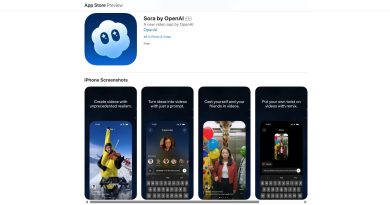Alexandr Wang Billionaire AI Chief at Meta: Why Teens Must Embrace “Vibe Coding” for the Future of AI
Introduction: The Rise of Alexandr Wang
Artificial intelligence is transforming every industry, from healthcare to finance, and few people embody this shift more than Alexandr Wang, the 28-year-old billionaire and co-founder of Scale AI. Recently appointed as Meta’s Chief AI Officer, Wang is urging young people to seize the moment and immerse themselves in AI development. His advice is simple but powerful: embrace “vibe coding”—a hands-on, exploratory approach to mastering AI tools.
Much like Bill Gates’ late-night programming sessions that shaped Microsoft, Wang believes today’s teenagers have the chance to lay the foundation for tomorrow’s AI-driven world.
Who is Alexandr Wang?
Early life and background
Born to immigrant parents, Alexandr Wang grew up with a passion for math and computer science. His early fascination with technology eventually led him to drop out of MIT and co-found Scale AI in 2016.
Co-founding Scale AI and its $29 billion valuation
Scale AI quickly became a powerhouse in data annotation and machine learning infrastructure, partnering with leading companies in defense, automotive, and technology. Today, it’s valued at $29 billion, cementing Wang as one of the youngest self-made billionaires in tech.
Appointment as Meta’s Chief AI Officer
In 2025, Wang’s influence expanded further when he was named Meta’s Chief AI Officer, a position that places him at the heart of shaping AI strategies for one of the world’s most powerful tech giants.
What is “Vibe Coding”?
Definition and origin of the term
Wang coined the term “vibe coding” to describe a new way of learning AI tools—through exploration, trial, and immersion, rather than rigid study. It’s about developing intuition by spending thousands of hours experimenting with AI platforms.
How vibe coding compares to traditional programming
Unlike traditional programming, where syntax and rules dominate, vibe coding focuses on fluency in AI systems. It’s about learning how to communicate with AI effectively, guiding it toward meaningful outputs.
Why teens should start early
For Wang, teenagers are at the perfect stage to adopt this mindset. Just as Bill Gates mastered computers before the rest of the world caught up, today’s teens can gain a competitive edge by mastering AI coding now.
Alexandr Wang’s Message to Teenagers
The “10,000-hour” advantage
Wang emphasizes that the key is time investment. By dedicating 10,000 hours to exploring AI tools, teens can position themselves as future leaders in the AI economy.
Drawing parallels to Bill Gates’ early programming journey
Bill Gates famously snuck into computer labs to practice coding. Wang believes this generation’s computer lab is AI—and that the teens who immerse themselves in it will shape the next wave of innovation.
Why now is the defining moment for Gen Z
“This is an incredible moment of discontinuity,” Wang explained. With AI advancing rapidly, those who master it early will define the future.
The Future of Coding in the Age of AI
Will AI replace programmers?
Wang admits that AI may soon be able to generate most of the code he’s written. This raises concerns about the future of traditional programming careers.
Andrew Ng’s perspective: Coding is still essential
AI pioneer Andrew Ng disagrees with the idea that coding will vanish. In a 2025 LinkedIn post, he warned that discouraging coding is “some of the worst career advice ever given.”
The importance of AI fluency and technical precision
Coding, Ng argues, isn’t just about writing instructions—it’s about understanding the language of software. This fluency allows humans to guide AI more precisely, much like how a skilled artist achieves better results with AI art tools.
How Teens Can Get Started with AI Coding
Learning the basics of programming
Languages like Python remain a strong foundation. Teens should first build fundamental coding skills before diving deep into AI.
Exploring AI-powered coding assistants
From GitHub Copilot to ChatGPT Code Interpreter, tools are available that allow beginners to experiment with real-world AI development.
Practical tools and platforms for vibe coding
- Kaggle – practice with datasets
- Google Colab – free environment for Python/AI projects
- Hugging Face – explore open-source AI models
Why AI Fluency Could Define the Next Generation of Innovators
AI as the “new literacy” for the 21st century
Just as reading and writing were once revolutionary, AI fluency may become the essential literacy of this century.
Opportunities in entrepreneurship, research, and leadership
From launching AI startups to driving innovation in medicine, finance, and space exploration, AI offers limitless possibilities.
The competitive edge of early adopters
Those who adopt early—today’s teenagers—will hold the first-mover advantage in shaping how AI is applied across industries.
Alexandr Wang’s Billionaire Status and Influence
Forbes’ $3.2 billion net worth estimate
Forbes estimates Wang’s fortune at $3.2 billion, built largely from Scale AI’s massive success.
Role at Meta and global AI leadership
Now, as Meta’s AI chief, he’s influencing how billions of people will interact with technology in the future.
Lessons from Alexandr Wang for Young Learners
Embrace curiosity and experimentation
Don’t just consume AI—play with it, break it, and rebuild it.
Balance between AI assistance and human creativity
AI can generate code, but it’s human creativity and insight that turn ideas into breakthroughs.
Turning passion into long-term impact
Like Gates and Wang, passion in youth can translate into lifelong innovation.
FAQs About Alexandr Wang and Vibe Coding
Q1. Who is Alexandr Wang?
A 28-year-old billionaire, co-founder of Scale AI, and Chief AI Officer at Meta.
Q2. What is vibe coding?
A hands-on method of mastering AI tools through exploration and immersion.
Q3. Why does Wang compare teens today to Bill Gates?
Because just like Gates’ early coding gave him an edge, today’s teens can gain an edge through AI coding.
Q4. Will AI replace programmers?
Not entirely—AI can generate code, but human coders remain vital for precision and guidance.
Q5. What tools can teens use to start vibe coding?
Python, Kaggle, Google Colab, and Hugging Face are excellent starting points.
Q6. How much is Alexandr Wang worth?
Forbes estimates his net worth at around $3.2 billion.
Conclusion: The Bill Gates Moment for Generation Z
Alexandr Wang’s call to action is crystal clear: teens must embrace vibe coding if they want to lead the AI future. Much like Bill Gates’ early mastery of computers, today’s young innovators can set themselves apart by investing time, passion, and energy into AI.
With Wang at the helm of Meta’s AI efforts and his proven track record at Scale AI, his message carries weight: AI fluency isn’t just a career skill—it’s the foundation of the next generation’s leadership in technology.
✅ External Source: Andrew Ng on LinkedIn


